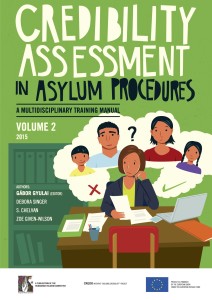- BY Debora Singer

Falling at each hurdle: credibility assessments in women’s asylum claims
THANKS FOR READING
Older content is locked

A great deal of time and effort goes into producing the information on Free Movement, become a member of Free Movement to get unlimited access to all articles, and much, much more
TAKE FREE MOVEMENT FURTHER
By becoming a member of Free Movement, you not only support the hard-work that goes into maintaining the website, but get access to premium features;
- Single login for personal use
- FREE downloads of Free Movement ebooks
- Access to all Free Movement blog content
- Access to all our online training materials
- Access to our busy forums
- Downloadable CPD certificates
The key reason why women are refused asylum in Europe is because they are not believed.
So let’s imagine a woman comes to the UK to seek protection from human rights abuses. Let’s call her Malaika. Chances are that Malaika will have experienced some form of sexual violence before she got to this country. And it’s more likely than not that she will be refused asylum at first instance. However Asylum Aid’s research found that she is also more likely to get that refusal overturned on appeal than if she were a man. And that the overturn was always down to the Immigration Judge assessing credibility differently to the initial decision-maker.
 Why is there this differential impact of credibility assessments for men and women? In a new multidisciplinary training manual on Credibility Assessments in Asylum Procedures just published by Hungarian Helsinki Committee I suggest why this should be.
Why is there this differential impact of credibility assessments for men and women? In a new multidisciplinary training manual on Credibility Assessments in Asylum Procedures just published by Hungarian Helsinki Committee I suggest why this should be.
Let’s say that Malaika has come to this country escaping domestic violence and that she comes from a country where there are laws against this but they are not enforced.
When she comes to apply for asylum Malaika has a number of hurdles to get over.
The first hurdle is that if Malaika were a political activist she would probably have documentary evidence for what has happened to her – she would have a membership card of an opposition party or a photograph of herself at a demonstration. But you don’t get a certificate for surviving domestic violence. There is no documentary evidence for any form of gender-based violence. So that’s Malaika’s first hurdle.
As Malaika has no documentary evidence, she is thrown back on her oral testimony. But the trauma of what she has experienced has affected her memory and so her account is inconsistent and full of gaps. And the shame and stigma she feels makes it difficult for her to disclose what’s happened to her at all or to disclose it at the right time. So Malaika’s testimony lacks coherence. Now Malaika has fallen at two hurdles, documentary evidence and oral testimony.
And the third hurdle is that the Home Office is misinterpreting the standard of proof. Unlike in the civil or criminal justice system, they should be using a very low standard, reasonable likelihood of risk on return. But the Home Office is setting the bar too high. So Malaika falls at all three hurdles in terms of credibility assessment.
The interaction of these three factors result in the difficulties that women face in relation to credibility. Because they cannot provide documentation to corroborate their account to satisfy the standard of proof being applied, they have to rely on oral testimony. However, this is problematic as trauma prevents them from disclosing what happened to them. The interaction of these factors means a woman is tripped up at one hurdle after another.
This interaction explains why women are disproportionately affected in credibility assessments. Falling at each successive hurdle, women fail to obtain a positive credibility assessment. That failure can result in failure to obtain protection from persecution.
This raises the question as to how to overcome these hurdles. Available online the training manual offers hands-on training not only on gender-related challenges of credibility assessment, but also on credibility assessment with children and in asylum cases based on sexual orientation or gender identity. It will be of interest to decision makers whether Immigration Judges or UKVI caseworkers and to legal representatives, providing expert information and guidance regarding issues that are key to improving credibility assessments in cases involving gender, sexual orientation or children.
Most women asylum seekers are refused because they are disbelieved. A third have that refusal overturned on appeal. If the decision were right first time, there would be huge savings both in reducing the stress for the woman concerned and financial savings through not having to go through the appeals system. This underlines the importance of correct credibility assessments.
